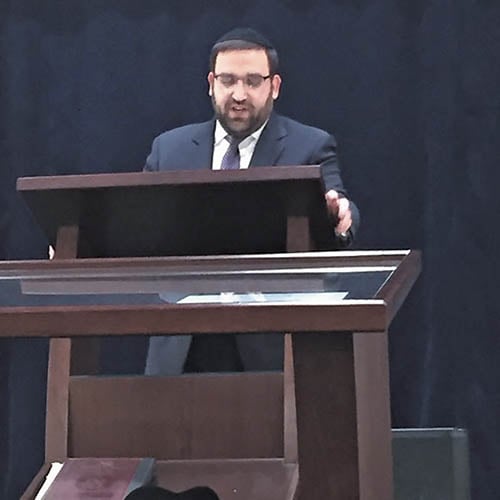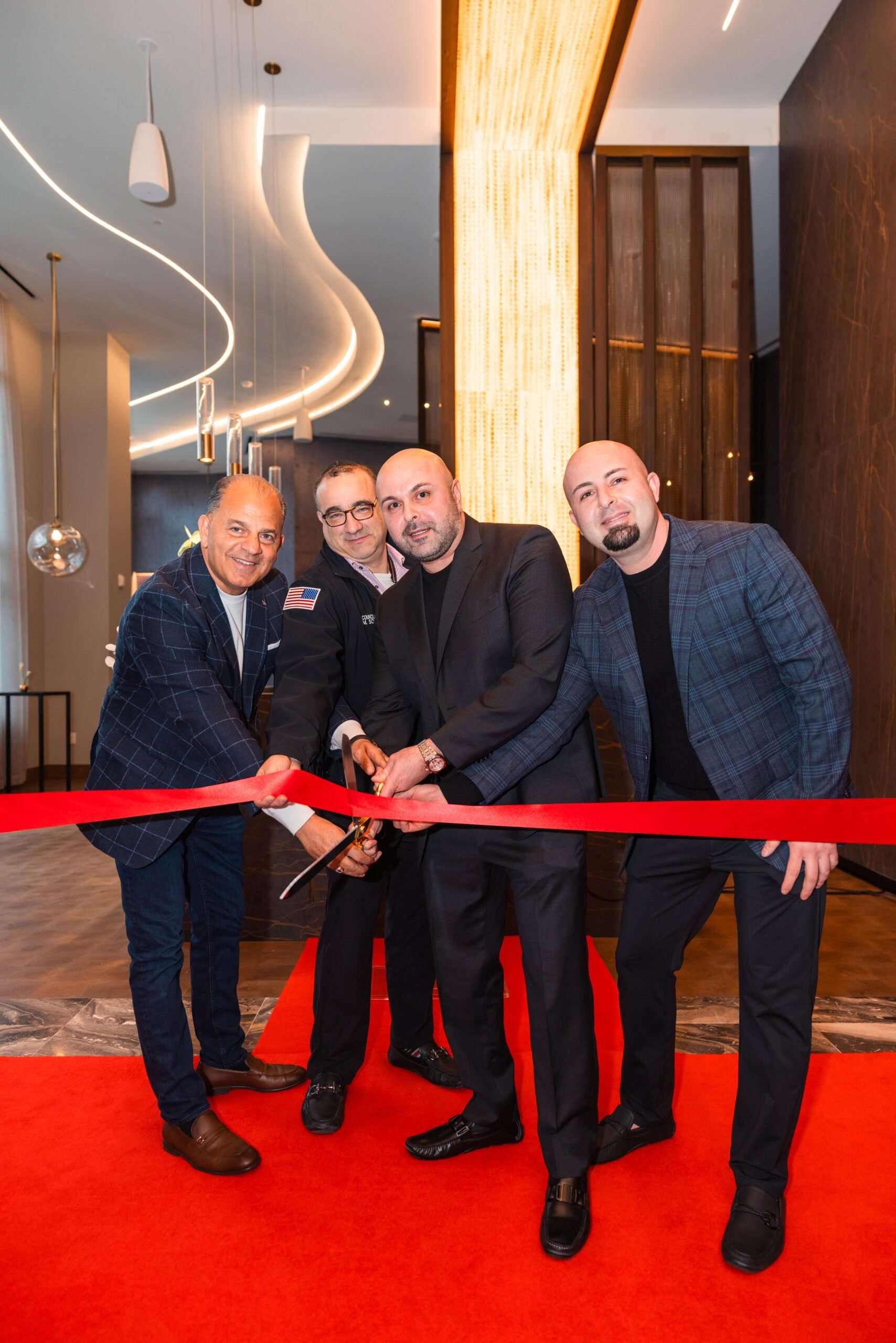

On Wednesday, May 4, the Young Israel of Passaic-Clifton hosted a community-wide Yom HaShoah Commemoration. Introductory remarks were made by Rabbi Yaakov Glasser, spiritual leader of the Young Israel. The featured speaker was Rabbi Jacob Jungreis, Holocaust survivor and lecturer. The program was sponsored by Carl and Miriam Singer in memory of his parents, who survived the Shoah in Siberian labor camps. Carl’s mother, who passed away two months ago, gave birth to him 70 years ago on a westbound freight train leaving the Soviet Union.
Rabbi Glasser opened the program by emphasizing the importance of Yom HaShoah and the Torah requirement to remember that which Amalek did to our ancestors on the way out from Egypt. He quoted Rabbi Joseph B. Soloveitchik that Amalek has ideological descendants in every generation, not genetic ones. Rabbi Glasser ended with a Midrash that we must remember the evil done to us, not just in our hearts, but verbally.
Rabbi Jacob Jungreis is an octogenarian child survivor of the Holocaust, a retired pulpit rabbi and educator. He held the audience spellbound during his hour-long talk. He linked his wartime experiences with verses and concepts from the Torah.
Before beginning his survivor testimony, Rabbi Jungreis shared that he first came to Passaic in 1947, before almost everyone in attendance was born. His great uncle, Rabbi Klonimus Keller, was spiritual leader of a large shul in Passaic, which the speaker visited for Shabbos soon after arriving in this country. Also, his maternal grandfather was rabbi of a large shul in neighboring Paterson.
Rabbi Jungreis was born and raised as a child in Szeged, Hungary, the second largest city in the country. His father was Chief Rabbi of the city. In 1942, a Polish Jew who escaped from a concentration camp came to the Jungreis house and told them that Jews were being turned into bars of soap. His parents found that impossible to believe, as did he. While the Nazi army didn’t invade Hungary until March, 1944, the Hungarian dictatorship for several years had already been drafting Jewish men and boys to serve in their own labor camps. The Jewish men of Szeged were sent to a camp called Bor, from which only a minority survived. The senior Rabbi Jungreis tried folk remedies to make his son appear too sick to serve, and gave all the Jewish men who were drafted heartfelt blessings plus kamayos or amulets.
The rabbi elaborated on how conditions in Hungary continually deteriorated for the Jews, culminating with the Jews of Szeged stuffed into cattle cars, 90 people to each one, which was triple their capacity. Breathing became difficult and many Jews died on the way. Young Jacob Jungreis and his family were taken off the cattle cars in Budapest.
The speaker shared that the Jungreis family was part of a group of 1800 Jews saved by Rudolph Kastner, the secular Zionist Hungarian leader. The group, which included Kastner’s entire extended family, was ransomed from Eichmann, who knew the war was lost, for $5 million (or $67.5 million in today’s dollar). Rabbi Jungreis called Kastner a tzaddik and dismissed, in advance, all lashon hara or gossip about the leader.
The rabbi and his family ended up spending over half a year in Bergen Belsen and suffered greatly. Fortunately, Rabbi Jungreis’s story has a happy ending with him and his family surviving the Shoah.
The rabbi shared many anecdotes of incidents he witnessed of mesirat nefesh (dedication) to keep mitzvot and spiritual heroism. During the Q&A session at the end, Rabbi Jungries discussed issues such as Jews returning to visit Europe, re-creating Torah communities in Europe and the particular culpability of Ukrainians.
By Shmuel Landesman











